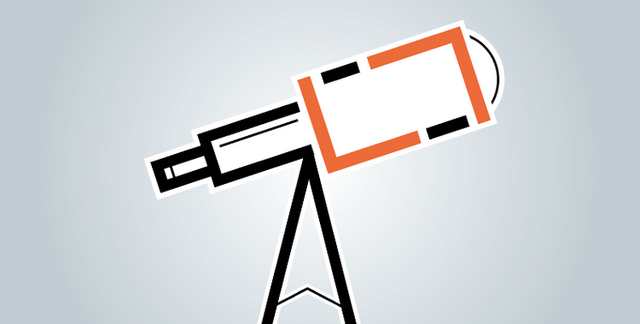
Chapters
According to the OECD’s latest economic survey, Belgium’s economy has been relatively resilient to recent shocks and is expected to continue to grow steadily. Public finances have deteriorated though. In absence of fiscal consolidation, the debt‑to‑GDP ratio is projected to rise fast. Cutting ineffective public spending and reforming the budgetary framework to increase accountability across governments would help ensure public finances are on a sustainable path. Reforms to taxes and benefits could foster labour market activation and expand the tax base. Strengthening prevention and return‑to‑work programmes could contribute to tackling the high and increasing take up of disability benefits and better support employment of people with reduced work capacity. A coordinated strategy to reduce administrative costs and facilitate small firms’ access to training could increase business dynamism and productivity. Targeted support for female entrepreneurs could also unlock additional potential of the SME sector. Achieving the green transition requires setting up binding targets and improving coordination of climate policy across federal and regional governments. Easing procedures and improved financing schemes would help deploy renewable energy production. Transparency in future environmental standards with adequate and well‑targeted financial incentives would sustain household investment in energy efficiency and electrification, particularly in the transportation and building renovation sectors.
Source: OECD
Key indicators
- Area
- 30,528 km2
- Population
- 11.79 mln (2023)
- Government type
- federal parliamentary democracy under a constitutional monarchy
- Languages
- Dutch (official) 60%, French (official) 40%, German (official) less than 1%, legally bilingual (Dutch and French)
- GDP
- $644.8 billion (2023)
- Growth rate
- 1.3% (2023)
- HDI
- 14
- Capital
- Brussels
Macroeconomic indicators
The Belgian economy has been relatively resilient to recent shocks, with GDP growth converging to its potential. Activity is projected to remain solid, but prospects are uncertain. Export-oriented industrial sectors have contracted, but domestic demand has underpinned activity. Private consumption was sustained by the automatic indexation of wages to inflation that prevented the erosion of households’ purchasing power. Employment has continued to grow, and the unemployment rate has stabilised at around 5.5%, below its pre-pandemic average level.
Source: OECD
IMF Statistics:
| Subject descriptor | 2023 | 2024 | 2025 | 2026 | 2027 |
|---|---|---|---|---|---|
|
All Items, Consumer price index (CPI), Period average, percent change Percent (Units) |
2.294 |
4.322 |
2.571 |
1.266 |
1.881 |
|
Current account balance (credit less debit), Percent of GDP Percent (Units) |
-0.688 |
-0.854 |
-0.909 |
-0.928 |
-0.934 |
|
Current account balance (credit less debit), US dollar US dollar (Billions) |
-4.436 |
-5.672 |
-6.52 |
-7.067 |
-7.285 |
|
Exports of goods and services, Volume, Free on board (FOB), Percent change Percent (Units) |
-6.199 |
-6.424 |
-1.932 |
1.563 |
2.281 |
|
Gross domestic product (GDP), Constant prices, Percent change Percent (Units) |
1.202 |
1.019 |
1.065 |
0.98 |
1.261 |
|
Gross domestic product (GDP), Current prices, Per capita, US dollar US dollar (Units) |
54913.707 |
56220.689 |
60417.875 |
63896.432 |
65274.522 |
|
Gross domestic product (GDP), Current prices, US dollar US dollar (Billions) |
644.84 |
664.365 |
716.98 |
761.174 |
780.384 |
|
Imports of goods and services, Volume, Cost insurance freight (CIF), Percent change Percent (Units) |
-4.973 |
-8.437 |
-1.788 |
1.996 |
2.608 |
|
Unemployment rate |
5.517 |
5.7 |
6.1 |
6.2 |
6.1 |
Source: IMF Statistics - Belgium
Relationships with Luxembourg
Existing conventions and agreements
Non double taxation agreement
In order to promote international economic and financial relations in the interest of the Grand Duchy of Luxembourg, the Luxembourg government negotiates bilateral agreements for the avoidance of double taxation and prevent fiscal evasion with respect to Taxes on Income and on fortune with third countries.
- Convention from 01.01.1972 (Memorial 1971, A no.64, p.1763)
- Effective as of 01.01.1973 (Memorial 1971, A no.64, p.1763)
- Avenant from 11.12.2002 (Memorial 2003, A no.195, p.4070)
- Effective as of 01.01.2005 (Memorial 2003, A no.195, p.4070)
- Avenant from 16.07.2009 (Memorial 2010, A no.51, p.913)
- Effective as of 01.01.2014 (Memorial 2010, A no.51, p.913)
Further information
Contact points in Belgium
Embassy of the Grand Duchy of Luxembourg in Belgium
Ambassador with residence in Brussels: Mr. Jean-Louis THILL
75, avenue Cortenbergh
B-1000 Brussels
Belgium
Tel.: (+32 -2) 737 57 00
Fax: (+32 -2) 737 57 10
E-Mail: bruxelles.amb@mae.etat.lu
Website: bruxelles.mae.lu
Honorary Consuls
Honorary Consul with jurisdiction over the Province of Antwerp:
Mr Laurent NOESEN
Nijverheidsstraat 54H
B-2160 Wommelgem
Belgium
Tél.: (+32) 3 2020920
E-mail: anvers@consul-hon.lu
Honorary Consul with jurisdiction over the Province of Liège:
Prof Dr Robert DONDELINGER
7, rue des Poètes
B-4121 Neuville en Condroz
Belgium
Tel.: (+32) 4 372 02 51 ; (+32) 4 366 72 59
E-mail: liege@consul-hon.lu
Honorary Consul with jurisdiction over the Province of Namur:
Ms Elisabeth de PITTEURS de BUDINGEN
15, Pommelée Vache
B-5080 La Bruyère
Belgium
Tel.: (+32) 4 259 90 00
E-Mail: depitteurs.elisabeth@proximus.be
Honorary Consul with jurisdiction over the Province of West Flanders:
Mr Frank DECEUNINCK
Leopold II laan 14
B-8400 Ostende
Belgium
Tel.: (+32) 59 70 09 12
E-Mail: ostende@consul-hon.lu
Madame Mathilde Pirlet-Rutot
Consule honoraire avec juridiction sur la Province de Luxembourg
Rue Bordchamps, 2A
B-6900 Marche-en-Famenne
Tél.: (+32) 498 85 28 77
E-mail: marche-en-famenne@consul-hon.lu
Source: Ministry of Foreign Affairs of Luxembourg




